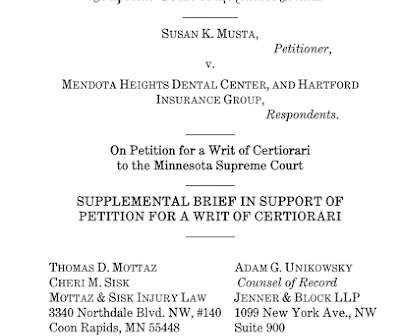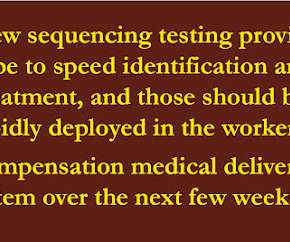US Supreme Declines to Review Medical Marijuana Reimbursement Issue
Workers' Compensation
JUNE 21, 2022
The US Supreme Court (SCOTUS) declined to review the Minnesota Supreme Court’s decision prohibiting reimbursement of medical marijuana costs in a workers’ compensation claim. Therefore, the individual States will remain the authority on whether reimbursement for medical marijuana will be permitted in a workers' compensation claim.












Let's personalize your content